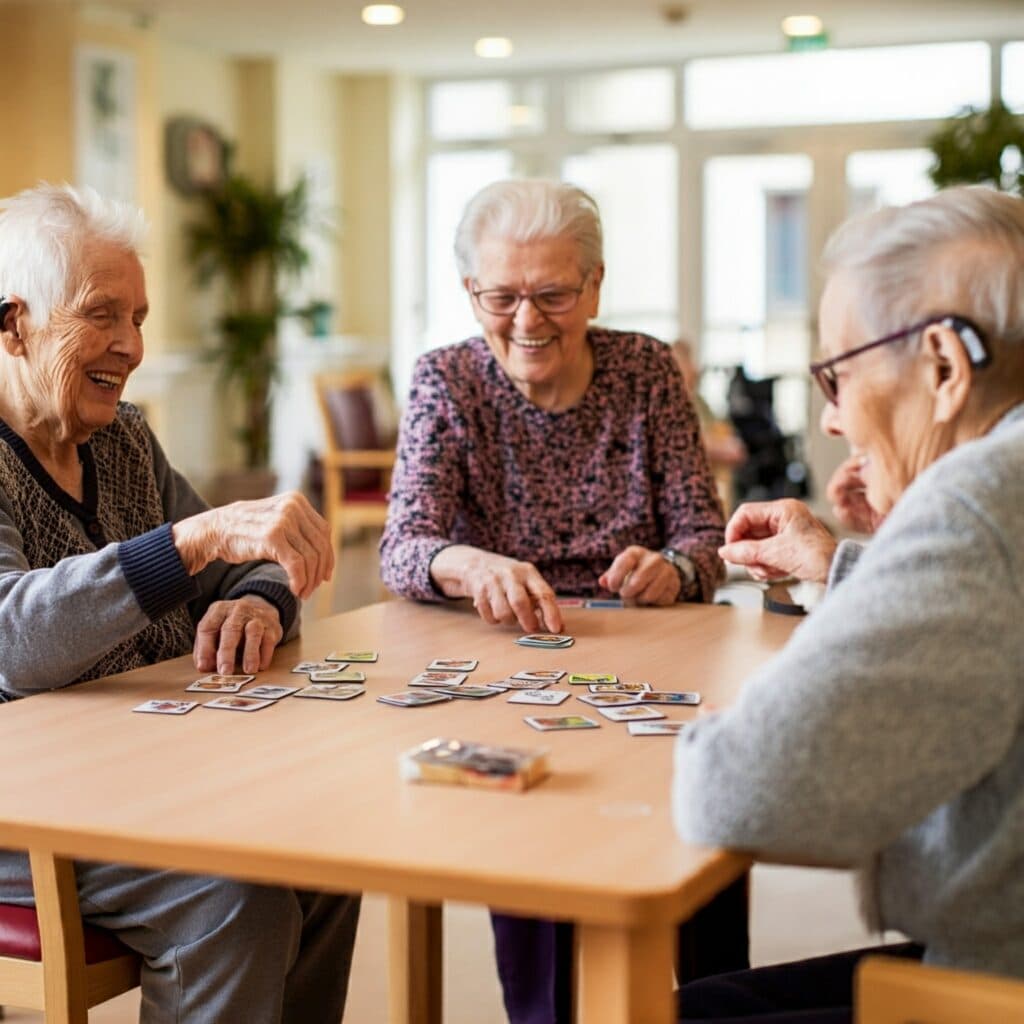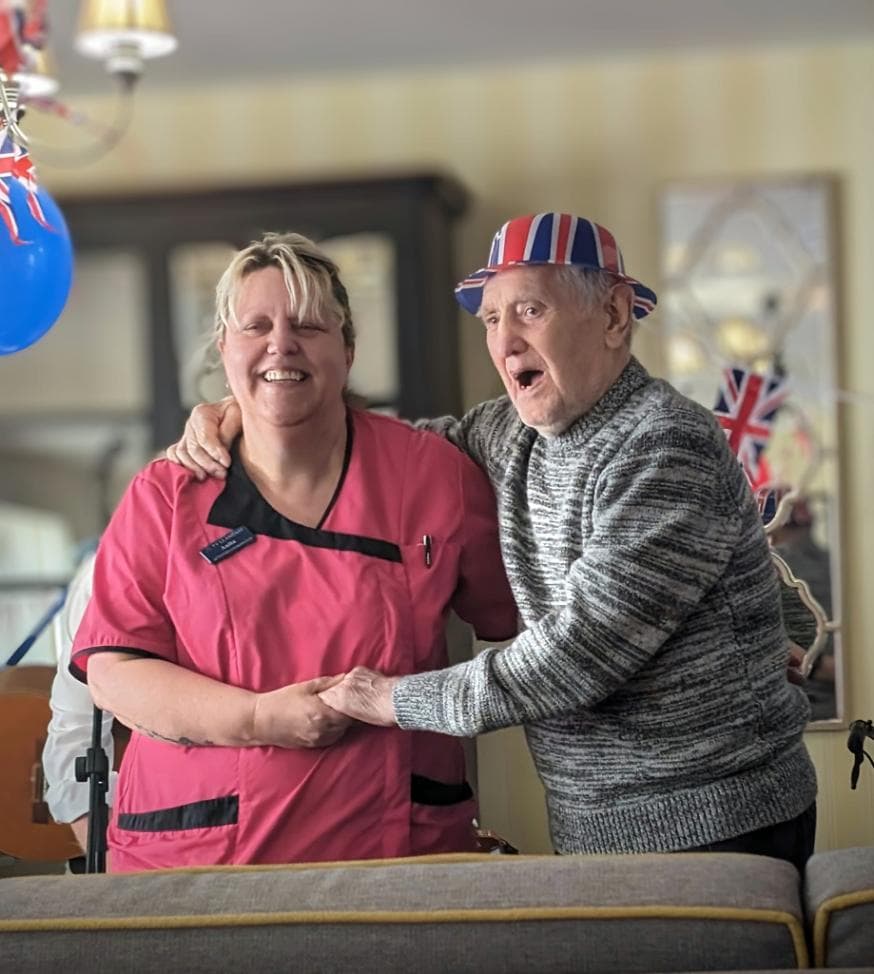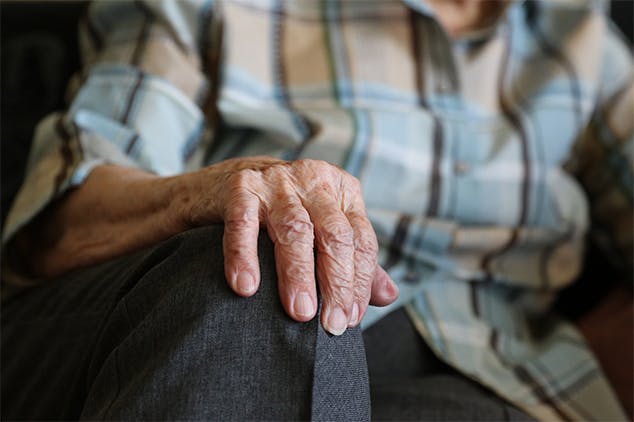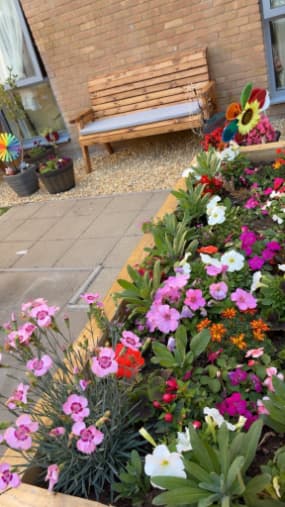The Impact of Activities for Care Home Residents

As we grow older, staying active and engaged becomes just as important as receiving high-quality care. In care homes across the UK, thoughtfully planned activities are an essential part of daily life that offer more than just entertainment. They bring comfort, structure and a sense of purpose to residents’ lives. Whether it’s a quiet afternoon of painting, a lively music session, or a gentle walk in the garden, these moments help residents stay connected to themselves, to others, and the world around them.
Why Activities Matter in Care Homes
Meaningful activity is far more than just a way to pass time in a care home. For residents, particularly those living with limited mobility or long-term health conditions, daily activities offer structure, purpose and a sense of connection to both their identity and the wider community. When activities are thoughtfully planned and delivered within a supportive environment, they play a central role in improving mental and physical health as well as providing an opportunity to engage with fellow residents.
The aim is to improve overall well-being while preserving dignity, autonomy and joy in daily life, no matter what activity they choose to engage in.
The Role of Social Interaction and Emotional Well-Being
Social interaction is key to helping residents feel valued and connected. Many older people enter care following a period of isolation, occasionally after the loss of a partner or close friends. Group activities are a wonderful way to combat loneliness and can dramatically reduce feelings of anxiety, stress or low mood. Encouraging residents to join in with regular group sessions builds confidence, strengthens relationships and supports mental stimulation.
Activities coordinators in care homes play a vital role in creating opportunities that appeal to a broad range of interests and abilities. By offering residents the chance to take part in arts and crafts, music sessions or seated physical classes, they help stimulate memory, develop motor skills and promote meaningful engagement. Each small interaction contributes to a wider sense of belonging, which can have a lasting impact on their quality of life.

Benefits of a Regular Activities Programme
While the focus on mental health and social engagement is important, the physical well-being of care home residents must not be overlooked. Staying active, even in gentle ways, helps preserve muscle strength, improve circulation and reduce the risks associated with chronic pain, heart disease or cognitive impairments. For residents living with mobility challenges, gentle exercise classes or tailored movement sessions can be transformative.
Exercise classes designed specifically for older people often include options such as light dance or seated exercise classes, ensuring that everyone, regardless of ability, can take part. These sessions are also a great way to boost the immune system and encourage laughter and connection amongst residents.
Examples of Indoor Activities
Indoor activities such as art classes, bingo or quiz nights and flower arranging provide opportunities to engage fine motor skills while promoting cognitive function. These types of activities are not only therapeutic but also encourage residents to express themselves and encourage friendly competition, reinforcing their sense of self and confidence.
Using familiar materials or involving tasks that link to life stories can make activities more meaningful. For example, encouraging someone who used to enjoy gardening to help with indoor planting or an ex-baker to get involved with a weekly cooking club can be a lovely way to connect past experiences with present capabilities. Activities that result in a physical product are a great way for residents to feel pride in their activities.
Memory-focused sessions such as reminiscence therapy also play a significant role in supporting cognitive abilities. By using photos, music or tactile objects from the past, care home residents can reconnect with significant moments in their lives, helping to stimulate memory and reduce feelings of confusion or distress.


Examples of Outdoor Activities
Spending time outside, breathing in fresh air and connecting with nature can have a calming and rejuvenating effect on mental health. Garden games, visiting a local garden centre, or simply enjoying time on the patio with a cup of tea are all ways to bring the outdoors into everyday life.
Gentle gardening, walking clubs, or even outdoor games such as lawn bowling or ring toss encourage physical movement while also supporting emotional well-being. These sessions can help residents feel refreshed and offer a change of scenery.
For care homes fortunate enough to have their own gardens or access to green space, there’s also the opportunity to invite in the local community. Events like summer fetes, family days or outdoor live entertainment can provide a real sense of community. These moments build bridges between residents and the world around them, strengthening a vital sense of belonging.
Tailoring Activities to Individual Needs
The most effective activities in care homes are those that are truly person-centred. Every resident has their own history, preferences and challenges, so taking time to understand what each individual enjoys is key to planning activities that will make a genuine difference. Activities coordinators often work closely with residents and their families to tailor activities that feel familiar, comforting or exciting.
Some residents may thrive in group settings, while others benefit more from quieter, one-to-one experiences. Flexibility is essential to encourage residents to take part in ways that suit them, helping them feel confident, seen and supported.
Incorporating personal stories and past interests into the daily routine is also an effective way to stimulate memory and encourage social engagement. Whether it is through storytelling, themed days or even simply enjoying a song from someone’s younger years, these seemingly small touches help maintain personal identity and foster stronger relationships between residents and staff.


Creating a Vibrant, Supportive Lifestyle at Tŷ Llandaff
At Tŷ Llandaff Care Home, we provide unrivalled levels of residential care, nursing care, dementia care, respite care and palliative care. Our team works closely with each resident to create a full calendar of creative, physical and social opportunities to ensure their needs, interests and preferences are exceeded.
Our dedicated activities team build sessions that support mental and physical health, from community quizzes, film afternoons in our cinema room, and visits into the local community. We also proudly celebrate our Welsh heritage through traditional food, music and language, creating a real sense of home and identity for residents who have lived in Wales their whole lives.
With access to a landscaped garden, comfortable seating and an in-house salon, we can offer our residents a true variety of accessible activities that are both stimulating and deeply enjoyable. Whether it’s planting new flowers with the help of our gardening club or hosting live entertainment events for residents and their families, we believe that every day should bring something to look forward to.
Choosing a care home is one of life’s most important decisions. At our care home in Cardiff, we are committed to ensuring that every resident not only receives the highest standard of care, but is also supported to live a full and active life, rich in purpose, joy and connection.
Book a Visit and Experience The Difference
If you want to experience what life at Tŷ Llandaff is like for yourself, please get in touch and book a tour. We can't wait to meet you and learn more about how we can support you or your loved ones.





